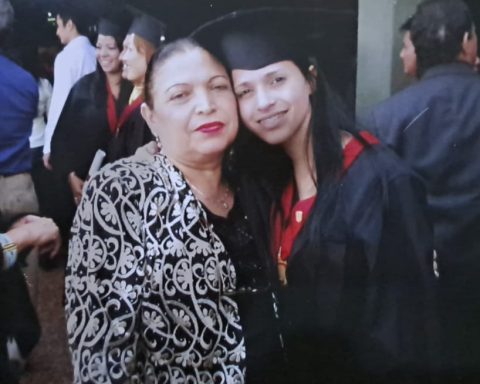Deputy Maite Orsini (RD) summoned her counterpart, María Luisa Cordero (IND) for diagnosing Antonia Barra, a young woman who committed suicide after being abused by Martín Pradenas, sentenced to 20 years in prison.
In his intervention in the room, Cordero – a psychiatrist by profession – indicated that Barra suffered from depression. “I wanted to say as a tribute to Antonia Barra, that not all people who suffer from her traumatic experience commit suicide.”
“She had a depressive structure and suffered from a phenomenon described by the Germans in the early 20th and late 19th centuries, which is called shameful insufficiency. She had such an amount of shame and pain that she committed suicide. I’m not applauding suicide, but I say this because suddenly in the smaller communities there are scandals and journalists go too far in commenting on situations that end up causing the self-elimination of those who are suffering from shame and embarrassing inadequacy,” he added.
Credit: Kevin Felgueras @24horastvn
Along these lines, Deputy Orsini summoned her to apologize to Antonia Barra’s family or, if this does not happen, she will review taking the case to the Ethics Commission.
“Unfortunately, Deputy Cordero, speaking in the Chamber and publicly, committed a serious offense and a serious lack of respect for the memory of Antonia Barra and her family, publicly diagnosing Antonia Barra, with whom she never exchanged a word, diagnosing an underlying depression that does not exist, contradicting the psychological and psychiatric reports that were presented at Antonia Ibarra’s trial, which indicate that, effectively, Antonia has no previous history of depression and that the suicide had been the product and direct cause of the aggression of which he would have been a victim by Martín Pradenas,” Orsini said.
“This is gross negligence, not only as a psychiatric doctor, by publicly diagnosing a patient that he has not treated and with a diagnosis that is not consistent with what the professionals exposed in court, but it is also a serious failure to parliamentary ethics in reviling the memory of a woman victim of a femicidal suicide that gave rise to this bill that we should all be celebrating today,” he added.
Due to this serious fault, as Orsini qualifies it, they are studying taking it to the aforementioned commission: “I would like to urge to raise the height of the debate. We are going through a historic moment in our country, and citizens expect much more from us. First of all, I would like to ask Dr. Cordero to apologize to Antonia and Antonia’s family for the serious offense she committed in the chamber today. I hope she does. And if she doesn’t, we will review the relevant mechanisms to prevent this type of situation from happening again”.


















